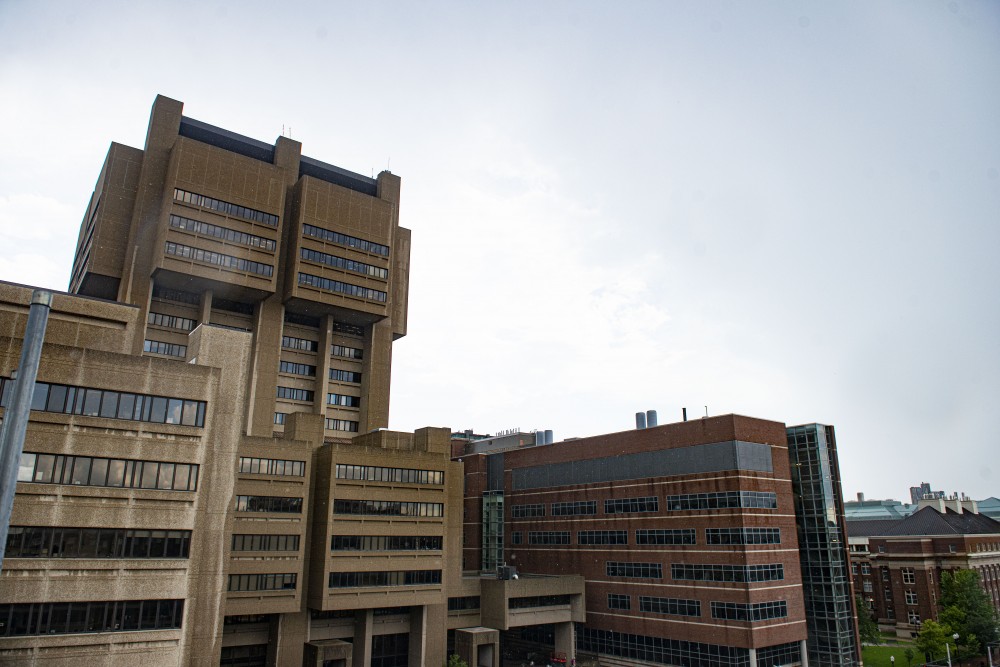;BOGOTÁ, Colombia (AP) – Judging by the fever-pitch rhetoric, the Andes region was girding for war on Monday. The leftist presidents of Venezuela and Ecuador recalled ambassadors from Bogotá and began moving tanks and troops to reinforce their borders with Colombia.
But will this political theater lead to war? Probably not.
Relations have clearly hit a new low between President Álvaro Uribe and his leftist neighbors. President Hugo Chávez of Venezuela warned darkly that Colombia and its U.S. military backers may trigger “war in South America” with commando raids like the one that killed a key leftist rebel commander across the border in Ecuador.
Ecuador’s President Rafael Correa called Colombia’s “a foul and lying government that doesn’t want peace.” And even the ailing Fidel Castro weighed in, writing that “The trumpets of war are being heard in our continent’s south as a result of the genocidal plans of the Yankee empire.”
But there is little appetite for armed conflict in the region despite Chavez’s recent purchases of $3 billion in Russian arms, including 53 military helicopters, 100,000 Kalashnikov rifles and 24 SU-30 Sukhoi fighter jets.
The economic costs, to begin with, are far too high.
Too many people depend on cross-border trade worth $5 billion a year, most of it Colombian exports sorely needed by Venezuelans already suffering milk and meat shortages. Ecuador depends on some $1.8 billion in trade with Colombia.
And militarily, Colombia has become a formidable foe, thanks in large part to $5 billion in aid from Washington since 2000. U.S. military advisers are sprinkled throughout Colombia’s military, and Washington could quickly ramp up support if war broke out.
Chávez’s critics say his saber-rattling is intended to deflect attention from mounting domestic woes.
“You can’t keep playing with the future of this country,” said Venezuelan opposition leader Manuel Rosales, whom Chávez defeated handily in the last presidential election. He accused Chávez of trying to “stir up nationalist sentiment to hide the truth of this country, which is falling to pieces.”
Chávez’s cause also wasn’t helped by Colombia’s discovery of what it described as damaging documents in three laptop computers seized at the jungle camp of Raúl Reyes, the slain spokesman for the Revolutionary Armed Forces of Colombia. Reyes was the rebels’ main interlocutor with foreign governments other emissaries, reporting directly to the FARC’s seven-man ruling secretariat, of which he was a member.
According to Colombia’s national police director, Gen. Oscar Naranjo, the seized files are “tremendously revelatory” and are being examined with the help of U.S. experts.
One document, apparently written in February, suggests Venezuela recently gave the rebels $300 million, while another suggests the rebels were shopping for 50 kilos of uranium, said Naranjo.
Still others refer to longstanding ties between Chávez and Manuel “Sureshot” Marulanda, the top FARC leader, he said. “This implies more than cozying up, but an armed alliance between the FARC and the Venezuelan government.”
The documents also show Correa has sought to deepen ties with the rebels, Naranjo told a news conference.
Correa called the Colombian charges an insult and broke diplomatic relations with Bogotá. “We are confronting an extremely grave situation, confronting a malicious, lying government that doesn’t want peace,” he said.
Elsewhere on the diplomatic front, Venezuela’s embassy and consulate in Bogotá were closed, Latin American presidents pleaded for reconciliation and offered to mediate, and an emergency meeting of the Organization of American States was called for Tuesday in Washington.
Naranjo did not provide details of the payments, or the uranium claim, and none of the documents were made public.
Both governments rejected the Colombian accusations as lies. Ecuador did, however, acknowledge that its internal security minister met recently with Reyes to discuss helping free hostages.
“Whatever they say has no importance,” said Venezuela’s vice president, Ramón Carrizalez.
There were some signs of military mobilization Monday.
Ecuadorean soldiers were helicoptered to their jungle frontier, and Venezuelan troops turned away private vehicles with Colombian plates at least one border crossing. Some Venezuelan tanks were spotted being trucked to the border near the northern port of Maracaibo.
But otherwise, there was relative calm on the ground. Colombia’s defense minister, Juan Manuel Santos, said no extraordinary military moves were planned, and vowed not to be drawn into a conflict with Chávez.
“I prefer to leave President Chávez out of this discussion,” he said. “We’re not commenting on what he does, says or suggests.”
South America hasn’t seen a shooting war among nations since Peru and Ecuador fought for a month in 1995 for long-disputed border valley, leaving about 80 soldiers dead.
Colombia’s borders with Ecuador and Venezuela are rugged and porous, crossed with ease by FARC guerrillas, who have been at war with successive Bogotá governments for more than four decades.
Colombia has long complained about this to both Ecuador and Venezuela, which have done little to confront the issue. According to rebel deserters recently interviewed by the Associated Press, Venezuela allows FARC fighters to get rest, medical attention and process cocaine for unhindered export to the United States and Europe.
The rebel presence has made many Venezuelans who live near the border uneasy. Chávez’s threats have only made these people more anxious. And war fever seemed absent from the streets of Caracas.
“I hope Chavez isn’t thinking about the madness of sending our sons to die in an absurd war with Colombia,” said Carmen Arellano, a 41-year-old homemaker. “Chávez wants to fight a war to conceal the social and economic crisis in this country.”
Venezuelan political analyst Teodoro Petkoff said he doesn’t believe war is imminent, despite Chávez’s rhetoric: “For me he’s a barking dog that doesn’t bite.”
















